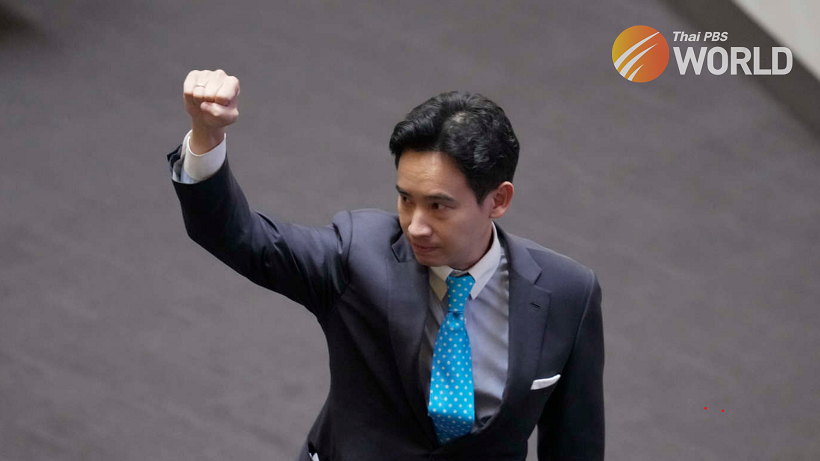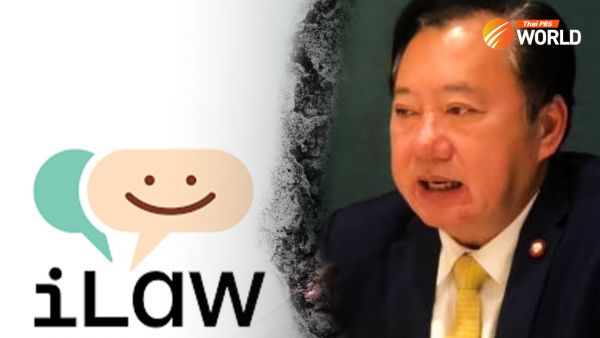Judgement day for Pita: A closer look at case that could change Thai politics

The Constitutional Court is set to rule on Wednesday (January 24) whether Pita Limjaroenrat, the initial front-runner to become Thailand’s 30th prime minister, violated the charter by contesting last year’s election while holding shares in a media company.
The former leader of the reformist Move Forward Party is accused of holding 42,000 shares in iTV Plc when he registered to contest the May 2023 election. A guilty verdict would result in Pita being disqualified from office and losing his seat in Parliament.
It could also prompt the Election Commission (EC), which brought the case, to sue Pita for violating the election law, which states that anyone contesting an election while knowingly unqualified to do so faces one to 10 years in prison, a fine of 20,000-200,000 baht, and 20 years with no electoral rights.
An EC subcommittee earlier suggested that criminal action against Pita be dropped due to a lack of incriminating evidence, but the election commissioners have reportedly postponed their decision to see whether any such evidence is mentioned in Wednesday’s court verdict.
If the court finds that iTV is not a media business, Pita will retain his MP seat. In that case, he is expected to return as leader of Move Forward and therefore of the parliamentary opposition.
Both seats are currently held by Chaithawat Tulathon, who replaced Pita last September after being elected at a general meeting of the party. Pita had stepped down amid uncertainty over his MP status to pave the way for a new Move Forward chief to become the opposition leader.
Chaithawat has vowed to step down for Pita to return as leader if he is cleared by the court.
Line of defense
Pita will also retain his MP seat if the court decides that he did not own the iTV shares in question, even if the court finds that the company is a media business.
Pita’s line of defense is that iTV has not operated as a media firm since 2007 and that he was only holding the shares as executor of his father Pongsak’s estate following his death in 2006.
The charismatic politician reiterated his argument before reporters after the final court hearing last month, pointing out that iTV’s revenue now comes from interest on its investments, not media operations.
“I am confident that iTV is not a media stock,” he said.
Long legal battle
iTV is Thailand’s first independent broadcaster but has been embroiled in a long legal battle with the Prime Minister’s Secretariat Office after changing its programming content and reducing its concession fee payment in 2004, following the green light from an arbitration tribunal.
The PM’s Secretariat Office revoked the channel’s 30-year concession in March 2007 after a decision by the post-coup government led by General Surayud Chulanont.
iTV, which was listed on the Stock Exchange of Thailand in March 2002, accused the office of dishonest termination of its concession. In January 2016, an arbitration tribunal ruled in its favour, absolving both sides from any debts stemming from the concession agreement.
The PM Secretariat Office then appealed to the Administrative Court, asking it to revoke the tribunal’s ruling on grounds that it did not reflect the original contract terms. The court in late 2020 found that the tribunal’s ruling was lawful and should be upheld. In January 2021, the office appealed to the Supreme Administrative Court, where a verdict is still pending.
Complaint by serial petitioner
Shortly before last year’s May 14 election, serial petitioner Ruangkrai Leekitwattana, who is affiliated with the current ruling coalition’s Palang Pracharath Party, asked the EC to investigate if Pita’s iTV shareholding was against the law. The petition came after a tipoff from a former MP candidate of the now-defunct Future Forward Party, Move Forward’s predecessor, that the leader of a political party was illegally in possession of media shares.
In July, the commission reported its investigation found that Pita was holding shares in a media company when he registered to contest the election, in breach of the Constitution. The EC said Pita’s status as an MP should be terminated as per Articles 98 and 101 of the charter, so it decided to refer the case to the Constitutional Court for a final verdict.
Article 98 prohibits “the owner of or a shareholder in any newspaper or mass media outlet” from contesting for an MP seat, while Article 101 states that the penalty for violating Article 98 is termination of House membership.
The Constitutional Court on July 19 suspended Pita from duty as an elected member of the House of Representatives pending its final verdict in the case.
By Thai PBS World’s Political Desk






